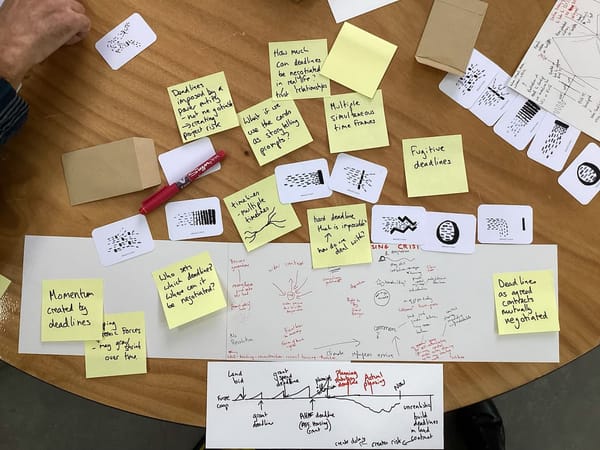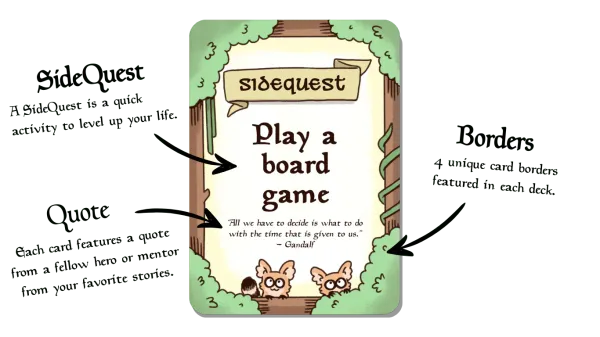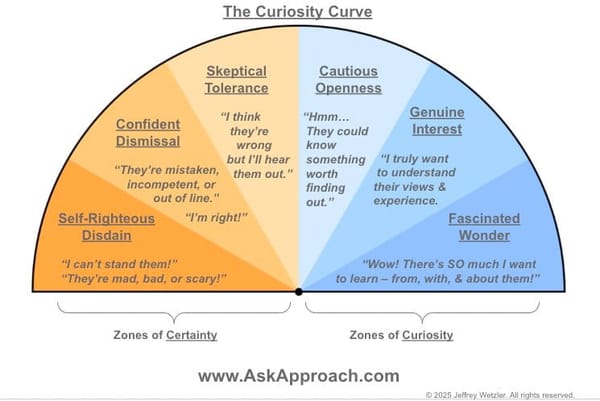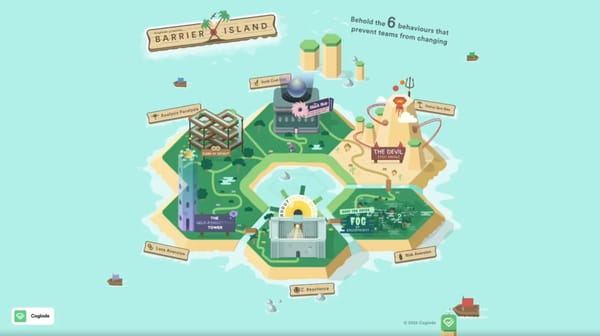Creative Challenge #2: Make A Zine!
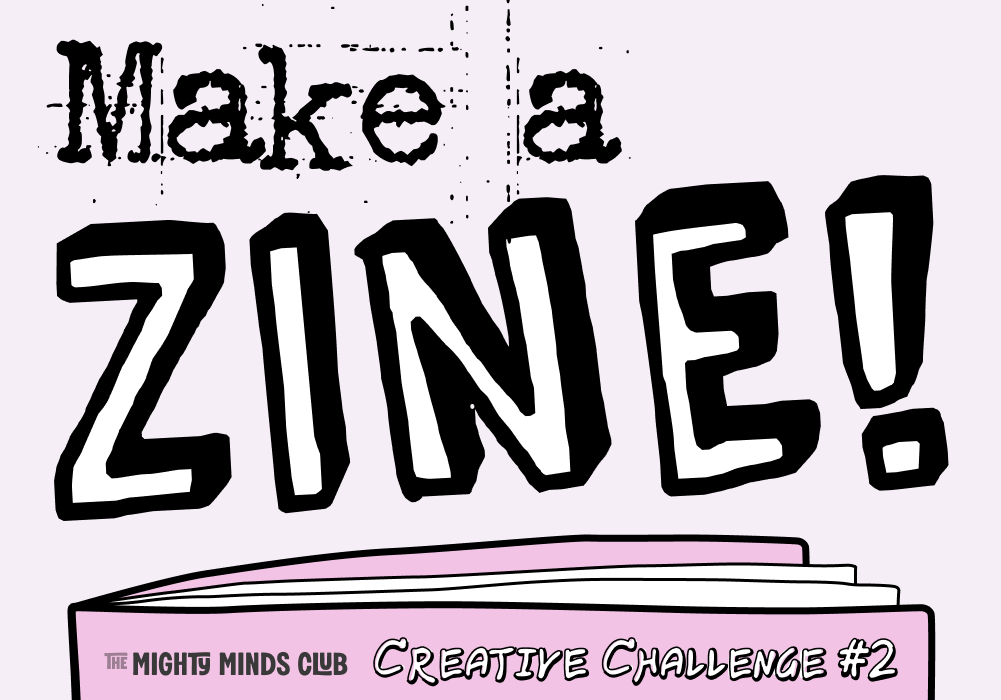
Ready for another Creative Challenge? This time, the challenge is to… 🥁
✨Make A Zine!✨
Otherwise, read on… I'll try my best to convince you this is a brilliant idea you most certainly do not want to miss out on!
Context & Inspiration:
This challenge is inspired by wizard zines, where Julia Evans has been creating a library of programming zines. Want to understand How DNS Works? Confused about How Integers and Floats Work? Find yourself thinking Help! I have a manager! Julia has you covered, with simple, fun, visual explanations, most coming in at about 24 pages.

Seeing all these—on a topic I don’t normally associate with zines—got me thinking about zines as a kind of playful thing to think with. And, I began thinking about how many of the various niche topics I’m interested might benefit from a zine treatment.
Wait, what's a zine?
According to Wikipedia:
A zine is a small-circulation self-published work of original or appropriated texts and images, usually reproduced via a copy machine. Zines are the product of either a single person or of a very small group, and are popularly photocopied into physical prints for circulation.
Why make a Zine?
I’m interested in making a zine for several reasons:
- Forces clarity: I know the constraints of only a few panels will force me to distill my thinking on a complex topic down to the essentials
- Encourages visual explorations: I can freely mix images and text in expressive & informative ways not encouraged by blog posts or traditional book publishing.
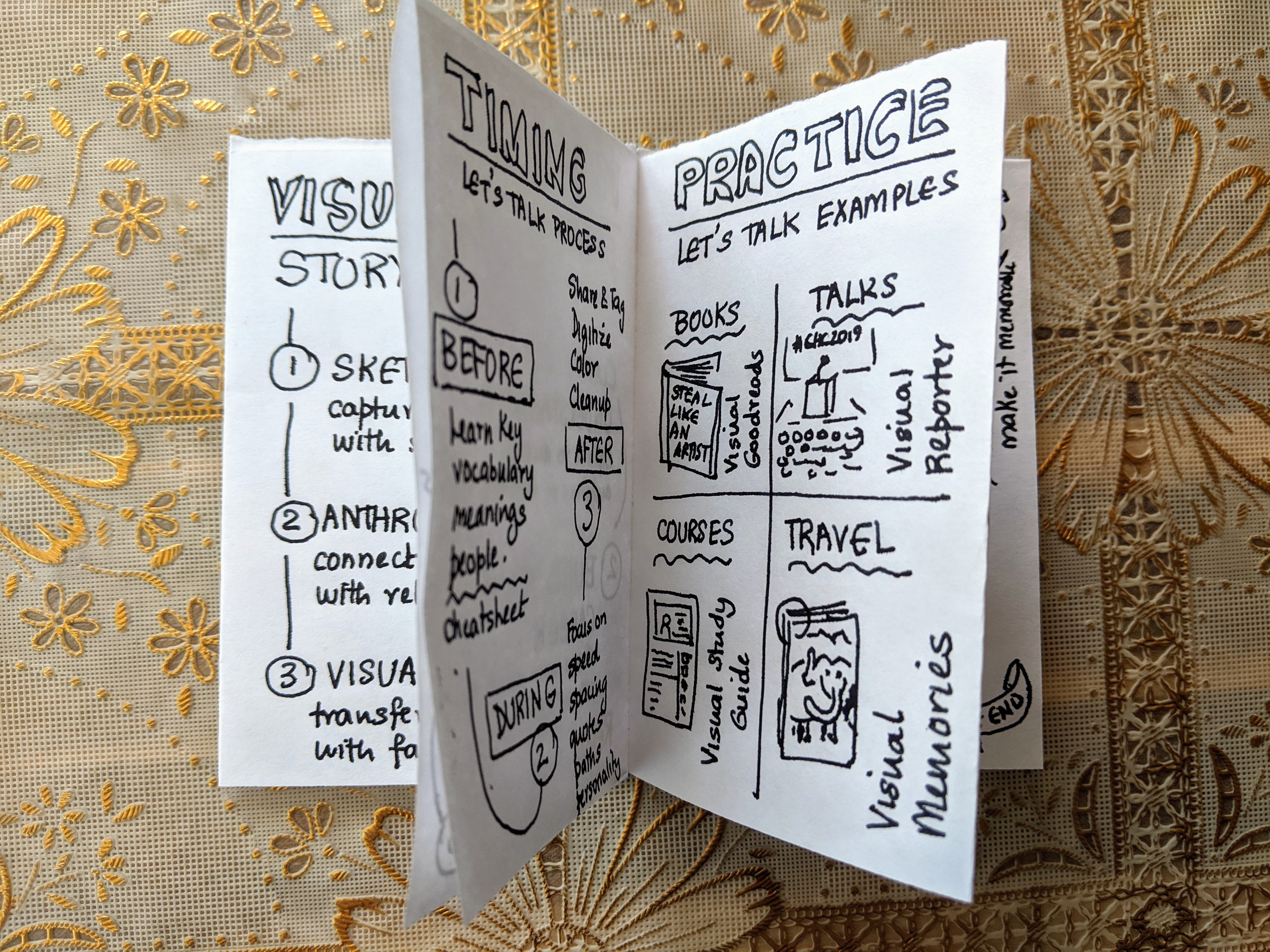
- Hands-on making: I love working with my hands and making tangible things; the interplay between maker and medium is a fascinating one. I'm looking forward to exploring some clever possibilities with paper—folds, cuts, flaps, paper choices, etc.
These were my initial reasons for wanting to make a zine.
And then…
As I started researching how to make a zine, I encountered additional thoughts that had me nodding my head with enthusiastic agreement:
A zine is a love letter about the author's obsessions… it introduces new readers to topics that they wouldn't have sought out otherwise and didn't know are fascinating.
Zines create a safe space to share intimate and personal details… on a subject you’ve researched for years
A zine offers a window into someone else's fascinations without the clinical or academic distance that often comes in books or newspapers.
Zines are beautifully unique creatures like blobfish or pegataurs, only limited by our imagination… Each zine comes uniquely from the person whose mind created it.
Whew. Exciting! And also… not all that new to me? 🤨
Other zines…
I recalled how my 11 page contribution to Christina Wodtke’s book Pencil Me In was itself a kind of zine, though I’ve never thought of it in that way. 🤪
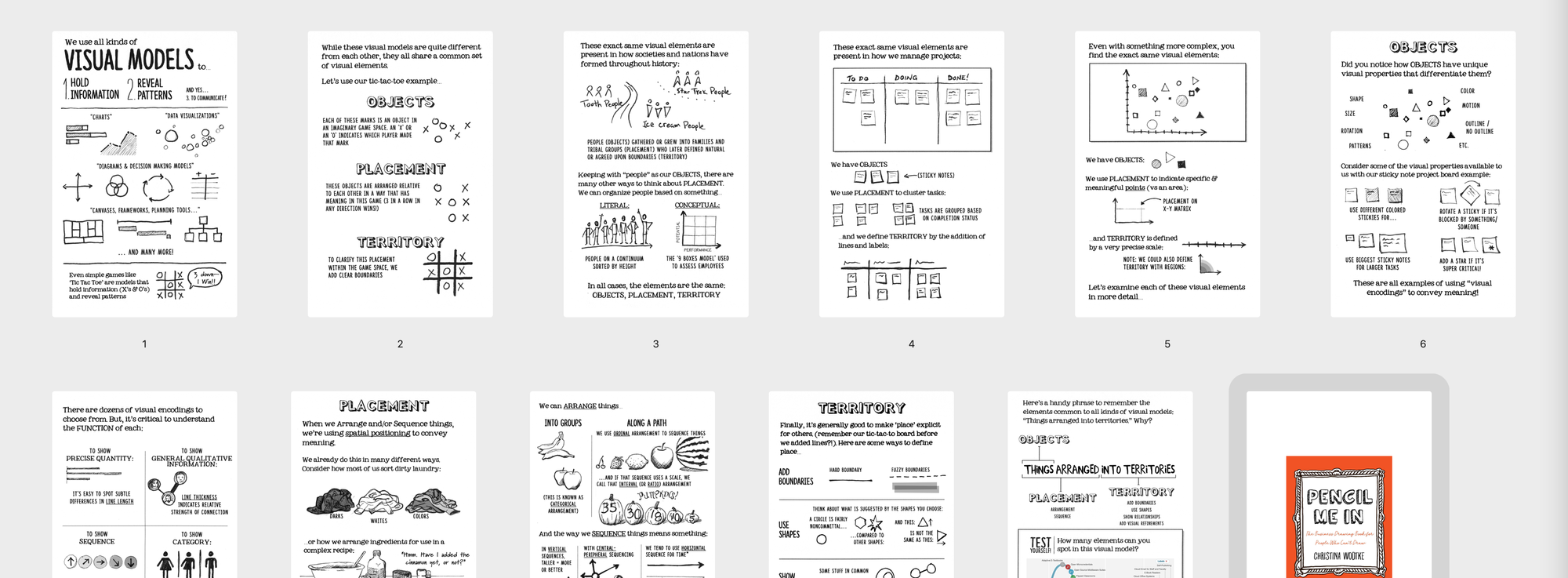
…and how even the earliest ‘beta’ version of Christina’s book was itself a kind of zine:
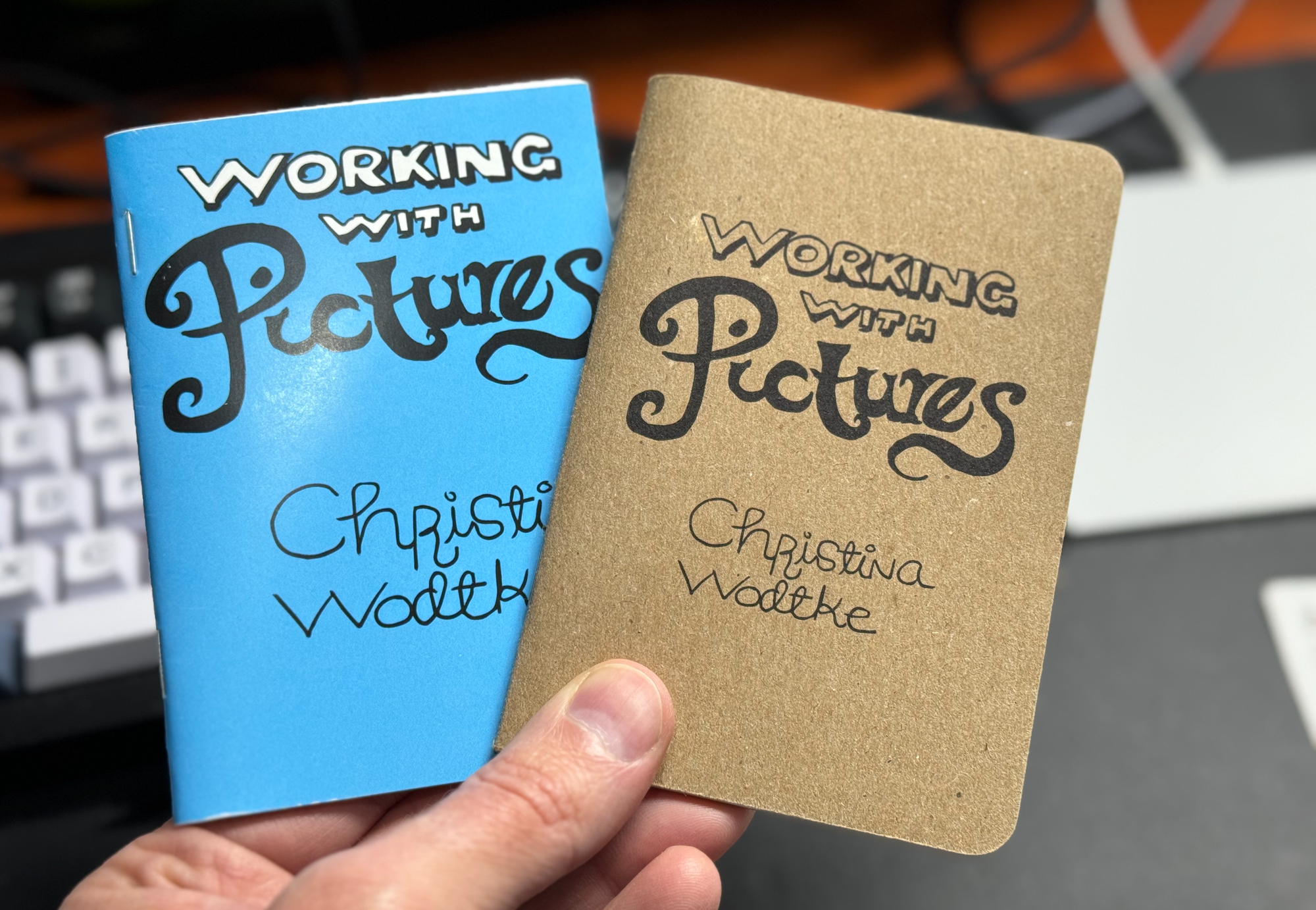
And then I thought about Abby Covert, and how she created small-form paper prototypes of her book How to Make Make Sense of Any Mess—a business card version and later an accordion map foldout version—to help her see the content from different perspectives.
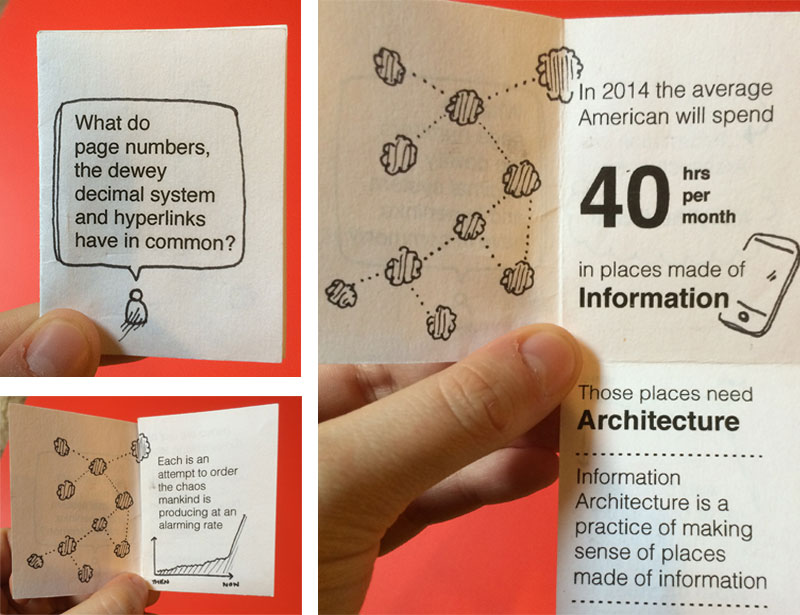
And now… I’m ready to make a zine. Or several. And do so with others (because, you know, learning is social!).
But… ✋
“I’m not sure what I’d make a zine about?”
Our first workshop together will explore just this—what topics might you explore or explain using a zine format. Trust me, you’ve got at least one topic deep inside of you screaming to be unleashed! A particularly appealing part of creating a zine is it’s an excuse for us geek out on a super-niche topic that we might not otherwise get to tell others about. 🤪
If you’ve got too many ideas, this same kickoff workshop will help you assess and select a topic to move forward with.
“I’ve never made a zine”
Neither have I! Let’s do this together. We can help each other along the way. As part of this challenge, we’ll have regular check-ins to cheer each other on, share discoveries, and ask for help. Additionally, there’ll be an online space to share and ask questions asynchronously.
As host of this challenge, I’ll pull together information and resources to help us all move along or get unstuck, if that happens. I’ve already picked up a few tips from books and videos, that I’m happy to share and/or synthesize. And, I can help a bit on the software side of things, with layout, setting things up for printing, etc.
You in?!
How to participate
This Minds Minds Club Creative Challenge will run throughout March 2024, with:
🗓️ A “formal” kick-off on Wednesday, Feb 28th (optional)
🗓️ A final show-and-tell Thursday, March 28th
🗓️ A couple of sharing and feedback sessions in-between (optional)
How do I join?
Let's keep this simple: Sign up here.
FAQs: 💬
Are there any strings attached?
Yes. You have to share your zine (PDF format) freely with everyone else who participates in this challenge. And… that’s it! If you decide to be extra generous and mail out printed copies, that’s nice, but certainly not expected. What you do with your completed zine after this challenge is completely up to you!
Any constraints?
Yes… and no? In the spirit of a ‘playful things✨to think with,’ I’d love to see everyone take on a difficult or challenging topic, or do something that supports Collaboration, Reflection, and Understanding. That's a pretty broad and inclusive sweep, right?!
Can I make a zine with a friend or small group?
Sure! While I’m approaching this as a solo activity, you’re welcome to work with another person or in a small team. That said, there’s an aspect to creating a zine, as with journaling, that’s often a bit personal and cathartic for the creator, which might be a reason to go solo with this challenge.
Any particular format?
Nope. That’s part of the fun, seeing how you shape this. A zine is typically a small booklet of some sort, often with low or no expectations of polish (which can be kind of freeing!).
What if I can’t make the meetings.
We’d hope you can make the final show and tell on Thursday, March 28th, otherwise all gatherings are optional. Recordings will be made available for the more instructive sessions.
I’ve made a zine or two in the past. Can I share what I learned?
Yes, please! The Mural board I've set up has few to no restrictions on sharing. If you also want to share at a synchronous meetup, just let me know and we'll hold—or create—space for you.
And there’s no cost to participate?
Correct. I might regret this decision later on, but… 🤷♂️


